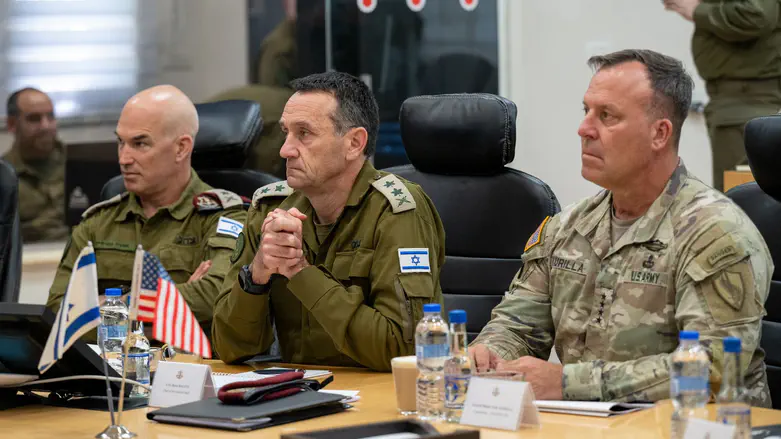
Watch the full hearing live.
In a comprehensive address to the Senate Armed Services Committee, General Michael “Erik” Kurilla, outgoing Commander of United States Central Command (CENTCOM), provided an in-depth analysis of the changing security dynamics in the Middle East. His testimony focused particularly on the growing threats posed by Iran and its proxy networks, and the crucial role of Israel and regional partners in maintaining stability.
General Kurilla described the aftermath of the October 7, 2023, Hamas attack on Israel as a turning point, asserting, “Iran operationalized its entire proxy network and arsenal of standoff capabilities” in response. He explained that this network, including groups such as Hamas, Hezbollah, and the Houthis, serves Iran’s enduring objectives: preserving the Islamic Republic’s regime, projecting ideological dominance, and achieving the destruction of the State of Israel.
Kurilla detailed the significant setbacks suffered by Iranian proxies in recent months. High-ranking operatives, including Yahya Sinwar, Mohammed Sinwar, Ismail Haniyeh, Hassan Nasrallah, Fuad Shukr, and Ibrahim Aqil, have been neutralized. He emphasized that the collapse of the Assad regime has severely impaired the logistical and weapons support once funneled to Hezbollah from Syria, marking a strategic loss for Tehran. “The Syrian regime collapsed… Soleimani’s vision of a Shia Crescent… was shattered,” he stated.
Highlighting Iran’s direct military engagement, General Kurilla pointed to large-scale missile and drone attacks targeting Israeli territory in April and October 2024. These barrages, involving hundreds of projectiles, were aimed at inflicting mass casualties. Kurilla noted that they were successfully repelled through coordinated efforts under CENTCOM’s Middle East Air Defense (MEAD) initiative, supported by robust Israeli defense capabilities. He remarked, “For all the purported support to the Palestinians, the only casualty of almost 500 projectiles fired by Iran was a Palestinian from Gaza living in Jericho.”
Turning to Yemen, Kurilla described the Houthis as an entrenched threat with strong backing from Tehran. He recounted over 300 attacks on maritime assets and Israeli targets, and detailed a CENTCOM-led military response designed to degrade the group’s operational capacity. “Following significant losses… the Houthis agreed to cease maritime attacks,” he noted. Nevertheless, he warned that the group continues to embed itself in illicit trafficking and militant networks across the Red Sea corridor, posing an ongoing challenge to regional security.
General Kurilla also addressed the complex situation in Gaza, acknowledging the pivotal diplomatic contributions of Qatar and Egypt in mediating hostage negotiations and supporting peace discussions. He recognized their continued engagement as instrumental in reducing tensions and enabling humanitarian measures. Simultaneously, he emphasized the vital role of US and allied military operations in reinforcing Israeli defense and preventing escalation.
The testimony included a pointed assessment of Iran’s nuclear program. Kurilla expressed concern about Iran’s accumulation of enriched uranium and its potential to develop nuclear weapons in a short timeframe. He said, “Should the Regime decide to sprint to a nuclear weapon, it is estimated that current stockpiles and the available centrifuges… are sufficient to produce its first 25 kg of weapons-grade material in roughly one week.”
General Kurilla disclosed that he has provided Secretary of Defense Pete Hegseth and President Donald Trump with “a wide range of options” in the event that diplomatic efforts fail to prevent Iran from advancing its nuclear program. While the specifics of these military options remain classified, Kurilla emphasized that CENTCOM is prepared to act decisively if ordered. He underlined that deterrence must be backed by credible military readiness.
Kurilla concluded his testimony by identifying the present moment as a strategic inflection point. “We now have an unprecedented opportunity to advance the vision of a prosperous and integrated Middle East,” he stated. He urged policymakers to capitalize on current momentum, strengthen alliances, and apply sustained pressure on malign actors. He reiterated that the cooperation between the United States, Israel, and regional partners remains essential for countering extremist threats and deterring hostile actions from state and non-state actors alike.
Through his testimony, General Kurilla presented a comprehensive account of the current threats and strategic opportunities in the region, with particular attention to Israel’s security and the broader implications for US foreign policy and military engagement in the Middle East.
Source link
2025-06-10 15:34:00




